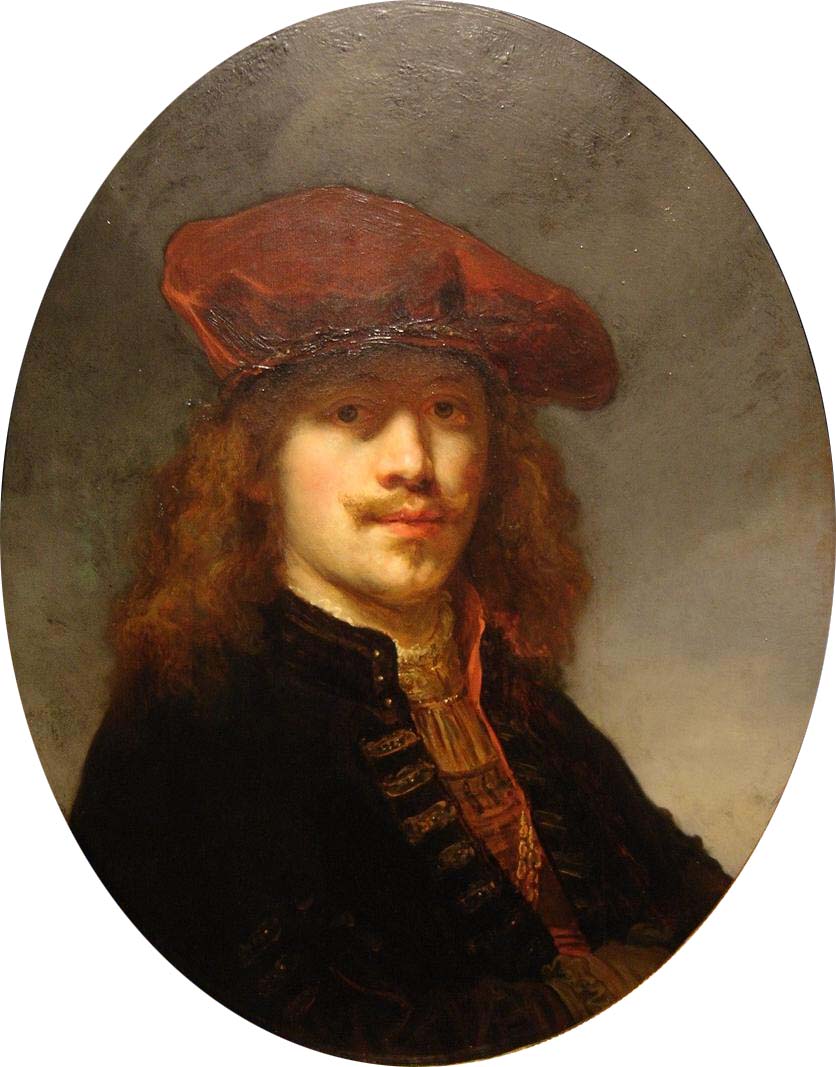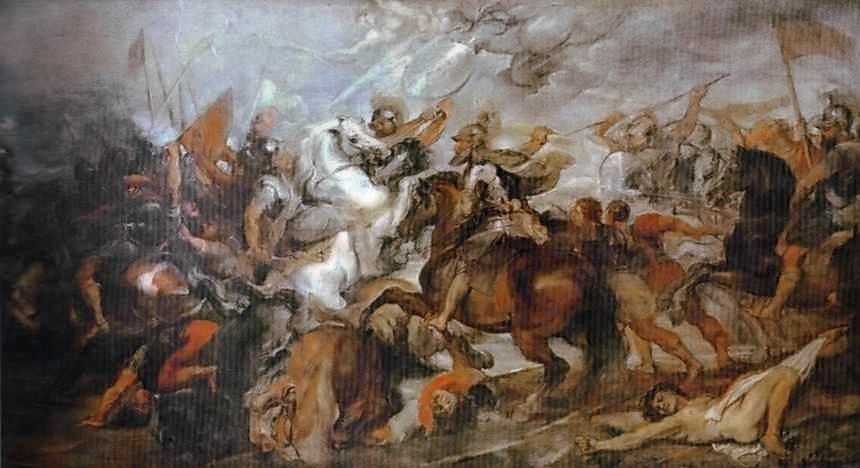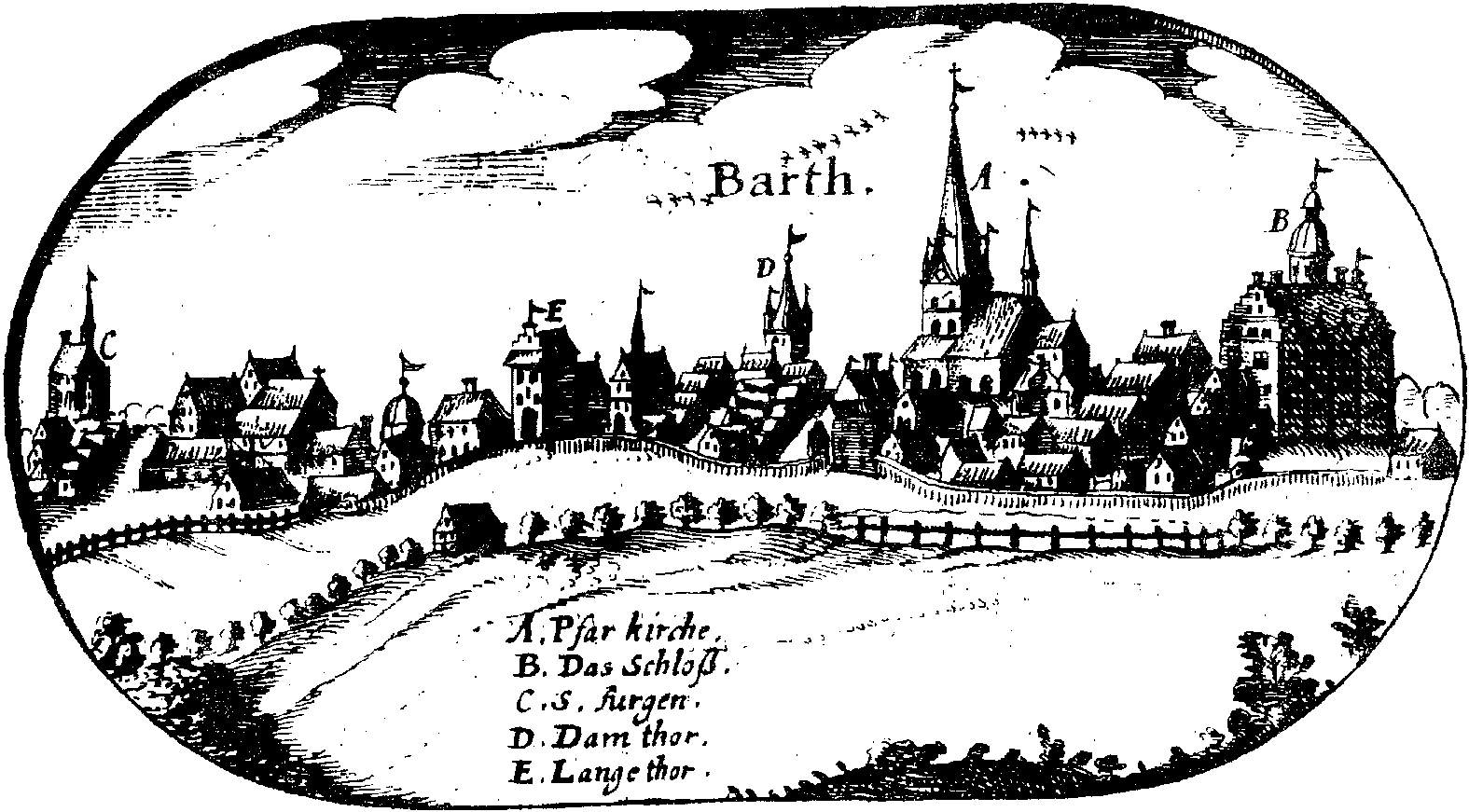|
Anna Von Croy
Anna of Pomerania (also known as ''Anne de Croy et Aerschot'', ''Anna von Croy und Aerschot, Anna von Pommern'') (3 October 1590, Barth, Germany, Barth - 7 July 1660, Słupsk, Stolp) was Duchess-Consort of Croy and Havré, and allodial heiress of the extinct ruling house of the Duchy of Pomerania. Eerly life and ancestry She was youngest daughter of Bogislaw XIII, Duke of Pomerania and his wife, Princess Klara of Brunswick-Lüneburg. She was the last surviving member of the House of Pomerania, House of Griffin (Greifen). Marriage and issue In 1619 she married Ernst von Croÿ (1588–1620), Prince and Duke of Croÿ (1583–1620), an Imperial general, he would however die the following year. Ernst was the son of Charles Philippe de Cröy, Marquis d’Havré, Charles Philippe de Croÿ (1549–1613), who was the only son of Philip II, Duke of Arschot, Philippe II of Croÿ, Duke of Aarschot by his second wife, Anna of Lorraine, Princess Anna of Lorraine. Their only son, Ernst Bogisla ... [...More Info...] [...Related Items...] OR: [Wikipedia] [Google] [Baidu] |
Anna Of Lorraine
Anna of Lorraine (25 July 1522 – 15 May 1568) was a princess of the House of Lorraine. She was Princess of Orange by her first marriage to René of Châlon, and Duke of Aarschot, Duchess of Aarschot by her second marriage to Philippe II de Croÿ, Philippe II of Croÿ. Life Anna was the daughter of Antoine, Duke of Lorraine, Antoine the Good, Duke of Lorraine, and Renée of Bourbon, Renée of Bourbon-Montpensier. Her maternal grandparents were Gilbert, Count of Montpensier, Gilbert of Bourbon, Count of Montpensier, and Clara Gonzaga, Countess of Montpensier, Clara Gonzaga. Her brothers were Francis I, Duke of Lorraine and Nicolas, Duke of Mercœur. By October 1537, Anna was suggested as potential bride to Henry VIII, Henry VIII of England. Hans Holbein the Younger was dispatched to Lorraine to paint a portrait of Anna for the King. Henry chose Anne of Cleves as his new bride, and married her on 6 January 1540, only to have the marriage annulled on 12 July 1540. Henry swiftl ... [...More Info...] [...Related Items...] OR: [Wikipedia] [Google] [Baidu] |
Pomeranian Nobility
Pomeranian is an adjective referring to the historical region of Pomerania, which is divided between Poland and Germany. Peoples and cultures * Pomeranian Balts, ancient western Baltic people * Pomeranian culture, an Iron Age culture of earlier people in land later called Pomerania * Pomeranians (Slavic tribe), a medieval West Slavic tribe * Pomeranians (German people) (Pommern), since the High Middle Ages Languages * Pomeranian language, a group of Lechitic dialects spoken by the Slavic Pomeranians of the Middle Ages * East Pomeranian dialect classified within Low German, spoken by the Pomeranians since the High Middle Ages * Central Pomeranian dialect classified within Low German, spoken by the Pomeranians since the High Middle Ages Animal breeds * Pomeranian dog, ''Spitz'' toy dog breed * Pomeranian Coarsewool sheep (also Pomeranian sheep, Pommernschaf) * Pomeranian duck (also Pommern duck, Pommernente) * Pomeranian goose (also Rügener goose, Pommerngans) * Poma ... [...More Info...] [...Related Items...] OR: [Wikipedia] [Google] [Baidu] |
People From Barth, Germany
The term "the people" refers to the public or common mass of people of a polity. As such it is a concept of human rights law, international law as well as constitutional law, particularly used for claims of popular sovereignty. In contrast, a people is any plurality of persons considered as a whole. Used in politics and law, the term "a people" refers to the collective or community of an ethnic group or nation. Concepts Legal Chapter One, Article One of the Charter of the United Nations states that "peoples" have the right to self-determination. Though the mere status as peoples and the right to self-determination, as for example in the case of Indigenous peoples (''peoples'', as in all groups of indigenous people, not merely all indigenous persons as in ''indigenous people''), does not automatically provide for independent sovereignty and therefore secession. Indeed, judge Ivor Jennings identified the inherent problems in the right of "peoples" to self-determination, as i ... [...More Info...] [...Related Items...] OR: [Wikipedia] [Google] [Baidu] |
1660 Deaths
Events January–March * January 1 ** At daybreak, English Army Colonel George Monck, with two brigades of troops from his Scottish occupational force, fords the River Tweed at Coldstream in Scotland to cross the Anglo-Scottish border at Northumberland, with a mission of advancing toward London to end military rule of England by General John Lambert and to accomplish the English Restoration, the return of the monarchy to England. By the end of the day, he and his soldiers have gone through knee-deep snow to Wooler while the advance guard of cavalry had covered to reach Morpeth.J. W. Fortescue, ''The History of the British Army'' (Musaicum Books, 2020) **At the same time, rebels within the New Model Army under the command of Colonel Thomas Fairfax take control of York and await the arrival of Monck's troops.''The History of Nations: England'', by Samuel R. Gardner (John D. Morris and Company, 1906) p. 374-275 ** Samuel Pepys, a 36-year-old member of the Par ... [...More Info...] [...Related Items...] OR: [Wikipedia] [Google] [Baidu] |
1590 Births
Events January–March * January 6 – García Hurtado de Mendoza becomes the new Viceroy of Peru (nominally including most of South America except for Brazil). He will serve until 1596. * January 10 – Construction of the Fortezza Nuova around the city of Livorno begins in Italy in the Grand Duchy of Tuscany on the orders of Ferdinando I de' Medici, Grand Duke of Tuscany and continues for more than 14 years. * January 25 – Luis de Velasco y Castilla, Marquess of Salinas, becomes the new Viceroy of New Spain, a colony comprising most of Central America, Mexico and what is now a large part of the southwestern United States. Velasco will govern until 1595, and then again from 1607 to 1611. * February 3 – Peter Ernst I von Mansfeld-Vorderort, the German-born commander of the Spanish Imperial Army captures the German fortress of Rheinberg after a four-year long siege during the Eighty Years' War. * March 4 – Maurice of Nassau, Prince of ... [...More Info...] [...Related Items...] OR: [Wikipedia] [Google] [Baidu] |
House Of Croÿ
The House of Croÿ () is an old European noble family of princely and historically sovereignty, sovereign rank, which held a seat in the Reichstag (Holy Roman Empire), Imperial Diet from 1486, and was elevated to the rank of Princes of the Holy Roman Empire in 1594. In 1533 they became Dukes of Arschot (in Belgium) and in 1598 Dukes of Croy in France. As a former ruling and Mediatised Houses, mediatized family, it belongs to the ''Hochadel'' (high nobility). In 1913, the family had branches in Belgium, France, Austrian Empire, Austria and Kingdom of Prussia, Prussia. This Dynasty, dynastic house, which originally adopted its name from the Château de Crouy-Saint-Pierre in French Picardy, claimed descent from the Hungarian people, Hungarian Prince Marc, (if true, he was likely a grandson of Géza, son of Géza II of Hungary, Prince Géza) who allegedly settled in France in 1147, where he married an heiress to the barony of Croÿ. The Croÿ family rose to prominence under the Dukes o ... [...More Info...] [...Related Items...] OR: [Wikipedia] [Google] [Baidu] |
Bishop Of Kammin
A bishop is an ordained member of the clergy who is entrusted with a position of authority and oversight in a religious institution. In Christianity, bishops are normally responsible for the governance and administration of dioceses. The role or office of the bishop is called episcopacy or the episcopate. Organisationally, several Christian denominations utilise ecclesiastical structures that call for the position of bishops, while other denominations have dispensed with this office, seeing it as a symbol of power. Bishops have also exercised political authority within their dioceses. Traditionally, bishops claim apostolic succession, a direct historical lineage dating back to the original Twelve Apostles or Saint Paul. The bishops are by doctrine understood as those who possess the full priesthood given by Jesus Christ, and therefore may ordain other clergy, including other bishops. A person ordained as a deacon, priest (i.e. presbyter), and then bishop is understood to hold ... [...More Info...] [...Related Items...] OR: [Wikipedia] [Google] [Baidu] |
Lutheran
Lutheranism is a major branch of Protestantism that emerged under the work of Martin Luther, the 16th-century German friar and Protestant Reformers, reformer whose efforts to reform the theology and practices of the Catholic Church launched the Reformation in 1517. The Lutheran Churches adhere to the Bible and the Ecumenical Creeds, with Lutheran doctrine being explicated in the Book of Concord. Lutherans hold themselves to be in continuity with the apostolic church and affirm the writings of the Church Fathers and the first four ecumenical councils. The schism between Roman Catholicism and Lutheranism, which was formalized in the Diet of Worms, Edict of Worms of 1521, centered around two points: the proper source of s:Augsburg Confession#Article XXVIII: Of Ecclesiastical Power., authority in the church, often called the formal principle of the Reformation, and the doctrine of s:Augsburg Confession#Article IV: Of Justification., justification, the material principle of Luther ... [...More Info...] [...Related Items...] OR: [Wikipedia] [Google] [Baidu] |
Ernst Bogislaw Von Croy
Ernst is both a surname and a given name, the German, Dutch, and Scandinavian form of Ernest. Notable people with the name include: Surname * Adolf Ernst (1832–1899) German botanist known by the author abbreviation "Ernst" * Anton Ernst (born 1975), South African film producer * Alice Henson Ernst (1880-1980), American writer and historian * Bastian Ernst (born 1987), German politician * Britta Ernst (born 1961), German politician * Cornelia Ernst (born 1956), German politician * Edzard Ernst (born 1948), German-British academic * Emil Ernst (1889–1942), astronomer * Ernie Ernst (1924/25–2013), American judge * Eugen Ernst (1864–1954), German politician * Fabian Ernst (born 1979), German soccer player * Fedir Ernst (1891-1942), Ukrainian art historian * Gustav Ernst (born 1944), Austrian writer * Heinrich Wilhelm Ernst (1812–1865), Moravian violinist and composer * Jim Ernst (born 1942), Canadian politician * Jimmy Ernst (1920–1984), American painter, son o ... [...More Info...] [...Related Items...] OR: [Wikipedia] [Google] [Baidu] |
Philip II, Duke Of Arschot
Philip, also Phillip, is a male name derived from the Greek (''Philippos'', lit. "horse-loving" or "fond of horses"), from a compound of (''philos'', "dear", "loved", "loving") and (''hippos'', "horse"). Prominent Philips who popularized the name include kings of Macedonia and one of the apostles of early Christianity. ''Philip'' has many alternative spellings. One derivation often used as a surname is Phillips. The original Greek spelling includes two Ps as seen in Philippides and Philippos, which is possible due to the Greek endings following the two Ps. To end a word with such a double consonant—in Greek or in English—would, however, be incorrect. It has many diminutive (or even hypocoristic) forms including Phil, Philly, Phillie, Lip, and Pip. There are also feminine forms such as Philippine and Philippa. Philip in other languages * Afrikaans: Filip * Albanian: Filip * Amharic: ፊሊጶስ (Filip'os) * Arabic: فيلبس (Fīlibus), فيليبوس (Fīlībū ... [...More Info...] [...Related Items...] OR: [Wikipedia] [Google] [Baidu] |
Barth, Germany
Barth () is a town in Mecklenburg-Vorpommern in north-eastern Germany. It is situated at a lagoon ( Bodden) of the Baltic Sea facing the Fischland-Darss-Zingst peninsula. Barth belongs to the district of Vorpommern-Rügen. It is close to the Western Pomerania Lagoon Area National Park. In 2011, it held a population of 8,706. History Middle Ages Barth dates back to the medieval German Ostsiedlung, before which the area was settled by Wends of the Liuticians or Rani tribe. Jaromar II, Danish prince of Rügen, granted the town Lübeck law in 1255. In the same document, he agreed to remove his burgh, ''Borgwall'' or ''Neue Burg'', then on the northwestern edge of the town's projected limits. Another Wendish burgh, ''Alte Burg'' near today's train station, was not used anymore. The German town was set up on empty space between the burghs. Not a member of the Hanseatic League, the town never grew to the importance and size of neighboring Hanseatic towns like Stralsund. The la ... [...More Info...] [...Related Items...] OR: [Wikipedia] [Google] [Baidu] |




